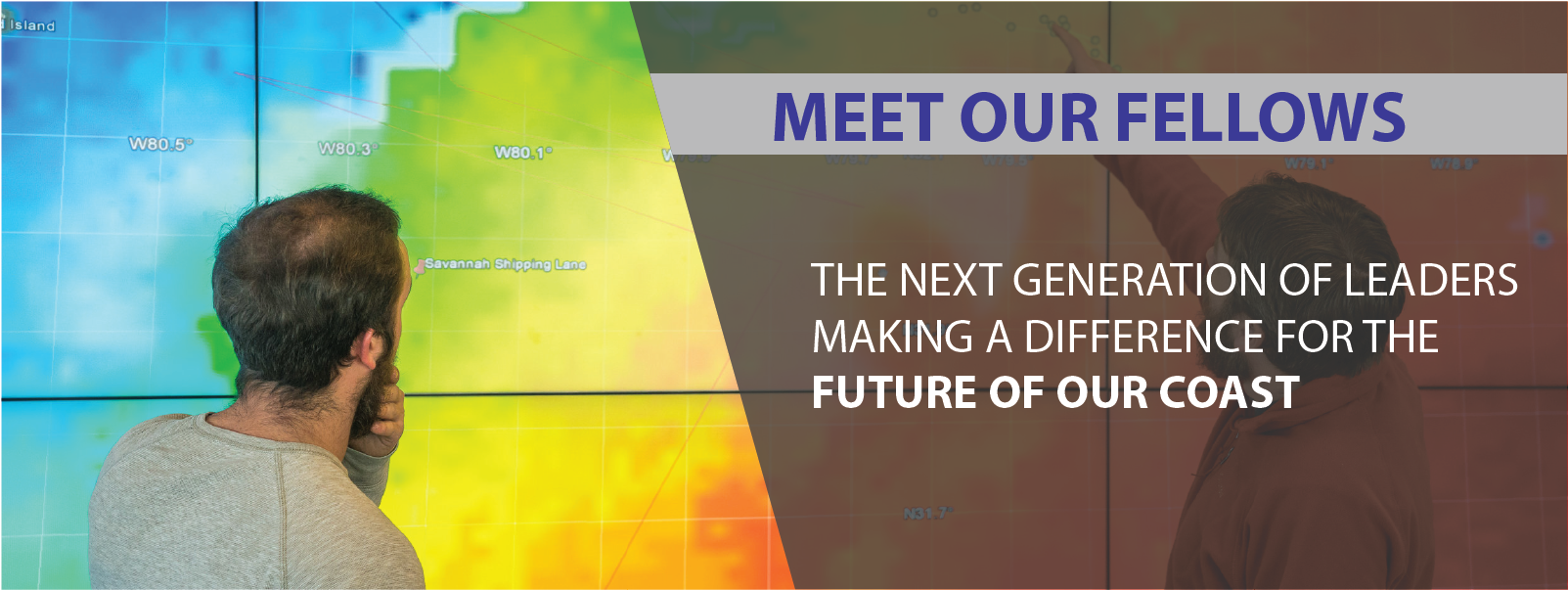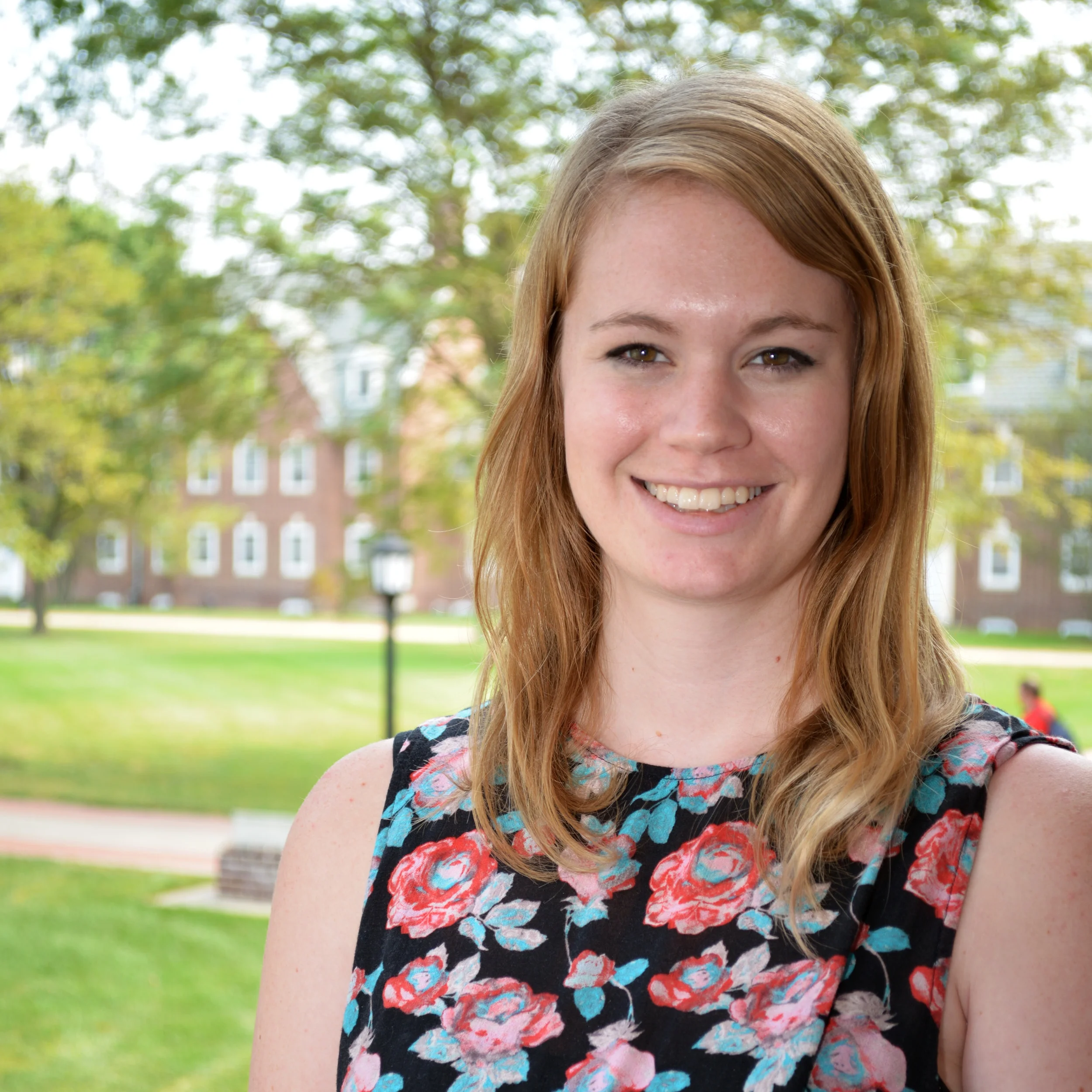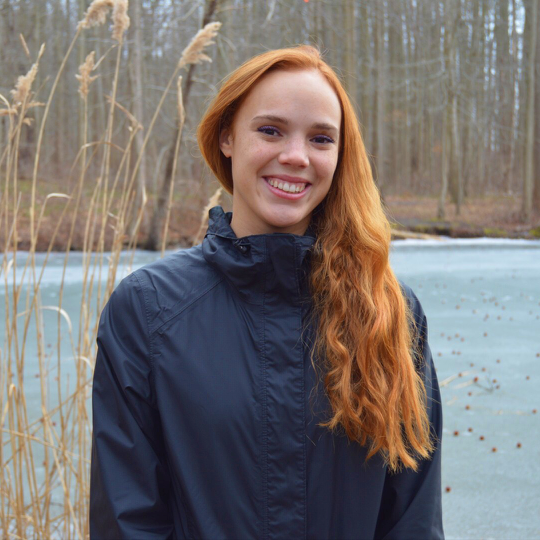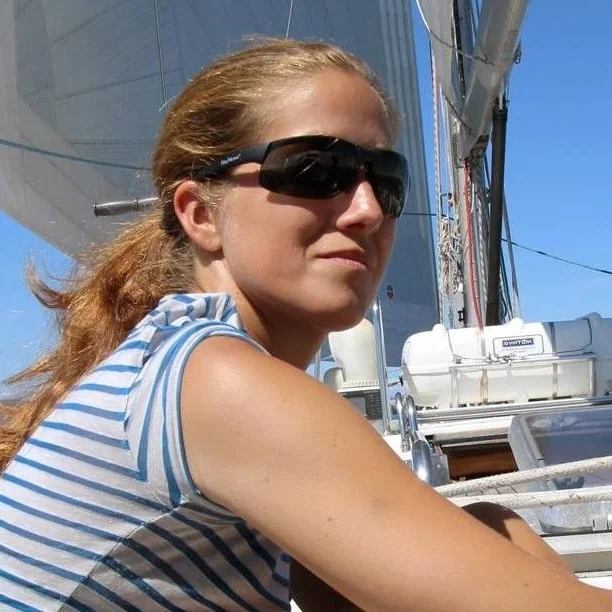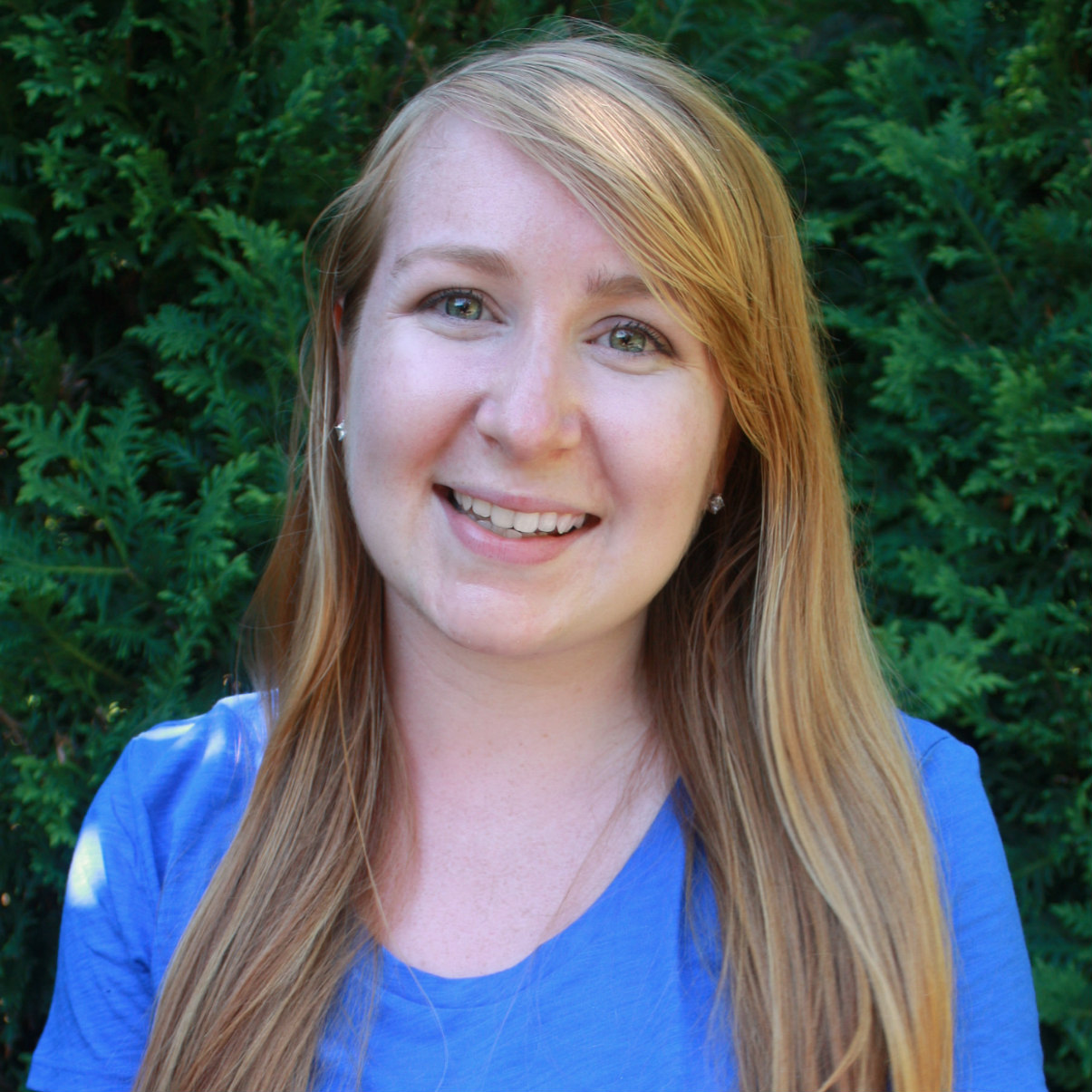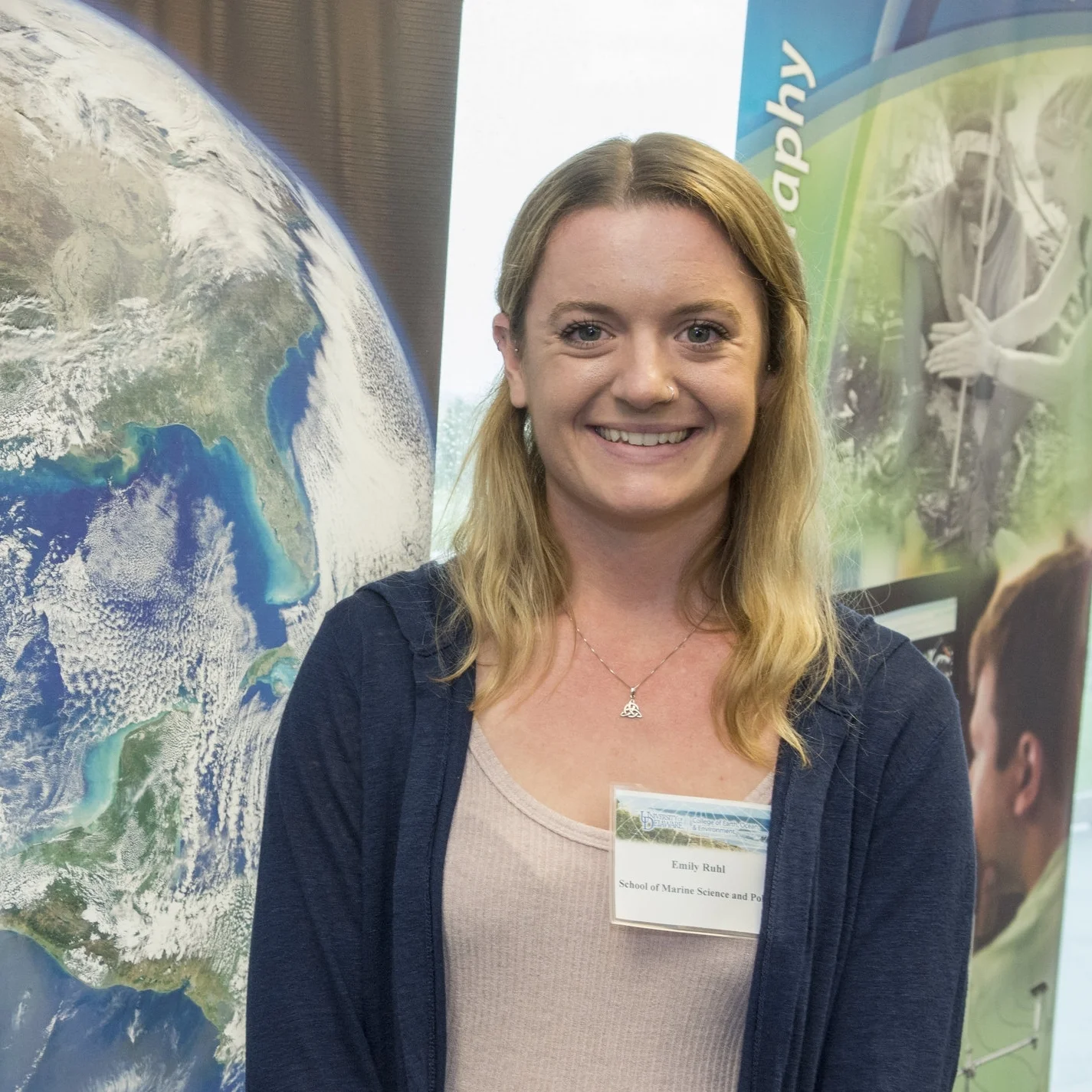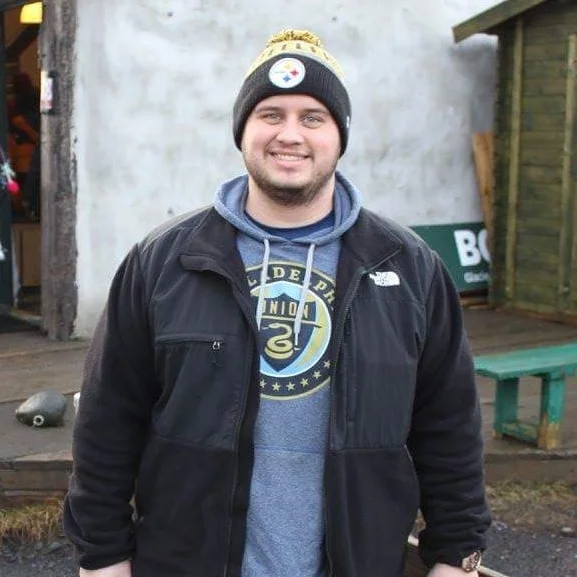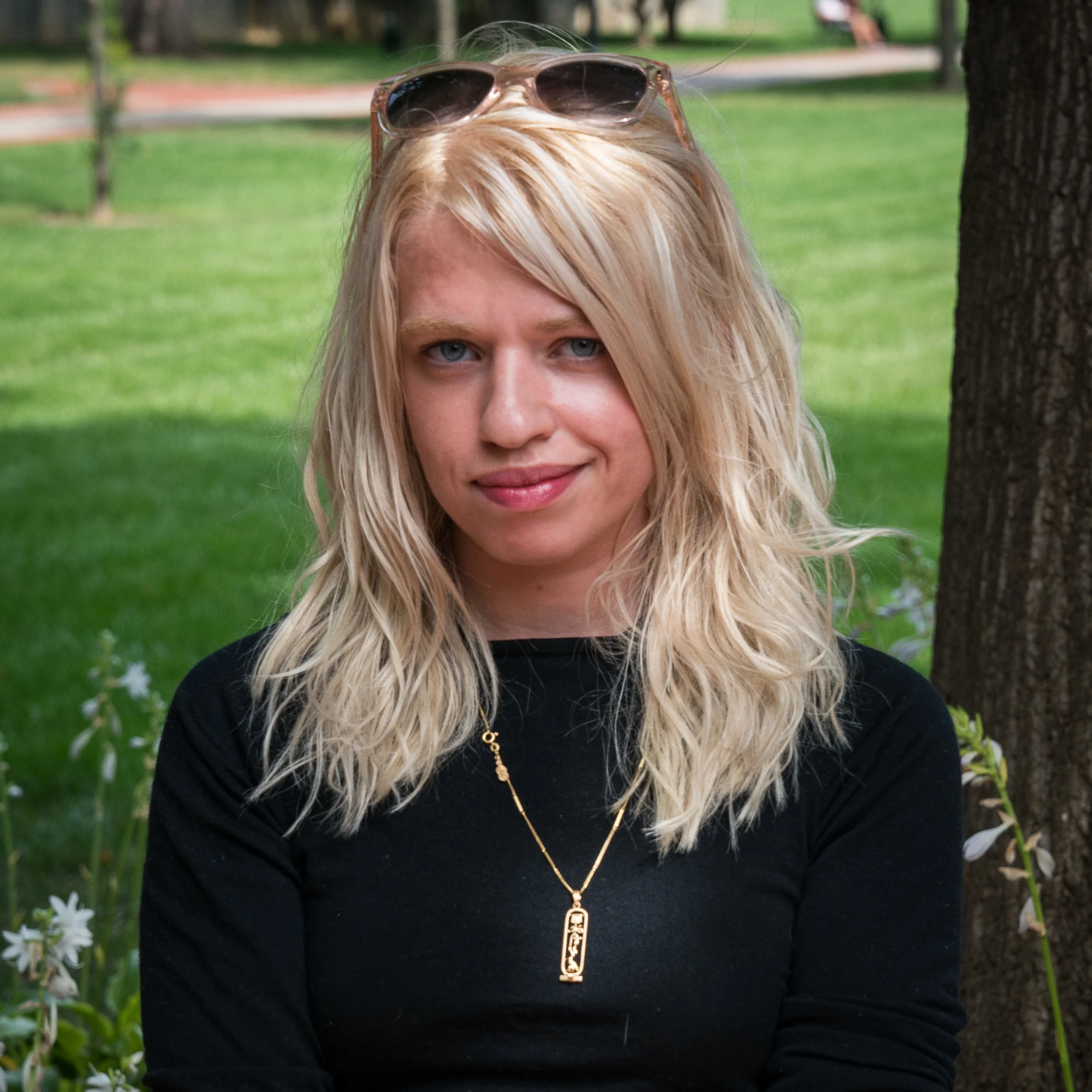CURRENT FELLOWS & INTERNS
Meredith Kurz
2018-2019 Knauss Fellow, placed with NOAA's Ocean Acidification Program
Alexis Cunningham
NOAA Coastal Management Fellow
Amanda Zahorik
Ocean Acidification Graduate Research Fellow
Christine Hirt
2019-2020 Knauss Fellow
Emily Ruhl
Delaware Sea Grant Intern
Chris Grasso
Delaware Sea Grant Intern
Maria Spadaro
Delaware Sea Grant Intern
“Working at the Ocean Acidification Program has been both very enjoyable and very educational, because the people that I work with are enthusiastic about helping me get exposure to all the aspects of their work.”
Meredith Kurz
Meredith Kurz is the current Delaware Sea Grant Knauss Marine Policy Fellow and is placed at NOAA's Ocean Acidification Program (OAP) in Silver Spring, MD, where she coordinates OAP's contributions to the Global Ocean Acidification Observing Network and leads an international scientific mentorship program called Pier2Peer. She applied to the Knauss program because it provides an unparalleled opportunity to see the inner workings of national marine policy formulation and application, and was happy with her placement because she also wanted to gain exposure to international marine policy.
Meredith received her Bachelor of Science in Ecology and Evolutionary Biology from Tulane University in 2013, and taught high school biology and earth science in New Orleans for two years following graduation. She returned to school herself at the University of Delaware, where she completed a Master of Marine Policy in 2017. At UD, she worked with her advisers, Dr. George Parsons and Dr. Sunny Jardine, on a Sea Grant project investigating how migrating barrier islands on the Mid-Atlantic coast are impacting the ability of back-barrier marshes to provide valuable carbon sequestration services.
Alexis Cunningham
Alexis Cunningham, a recent MS graduate in Water Science & Policy, was matched as a NOAA Coastal Management Fellow with Coastal States Organization (CSO). There, she will assist in leading CSO and the Association of State Floodplain Managers’ in promoting and improving the Community Rating System (CRS) as a tool to achieve coastal flood resilience. This includes bridging the gap for communities that do not have sufficient capacity to join or advance in the CRS. She hopes to contribute to the field of water management and policy in sorting out the competing priorities of ecosystems, economic development, energy, food, and human consumption.
Amanda Zahorik
Amanda Zahorik is a molecular biology doctoral student and member of the Viral Ecology and Informatics Lab (VEIL) at the University of Delaware, where the focus is on how microbes affect their environment on organismal, regional, and global scales. As an Ocean Acidification Fellow, she will be studying the role of the oyster-associated microbial community in shell formation in the Eastern Oyster, Crassostrea virginica, a Delaware native and keystone species in the Delaware and Chesapeake bays. She will also be collaborating on community outreach and education with the Delaware Center for the Inland Bays, a non-profit environmental advocacy group whose mission is to restore and protect Delaware's inland bays and watersheds.
Amanda believes that even the best science can amount to nothing without the will and skill to communicate its implications and impacts to the broader community. As an Ocean Acidification Fellow, she hopes to become not only a better scientist, but a better scientific writer, speaker, and environmental advocate.
Christine Hirt
Christine Hirt is a 2019 finalist for the John A. Knauss Marine Policy Fellowship. She received her B.A. from the Macaulay Honors College at CUNY Hunter College with a triple major in Environmental Studies, Public Policy, and Religion. At the University of Delaware College of Earth, Ocean, and Environment, she earned her Master of Marine Policy degree, studying the social issues surrounding offshore energy development, specifically contributing to research on public perceptions, attitudes, and support for the Block Island Wind Project.
Christine is looking forward to the Knauss Fellowship where she will gain a unique, firsthand experience in the policies and processes of the federal government and how federal policy decisions affect ocean and coastal resources. She strives to bring various stakeholders and disciplines together to create resilient and environmentally sustainable policy solutions that are socially acceptable and economically viable for the problems that our coasts face today.
Emily Ruhl
After graduating from Gettysburg College with an Environmental Studies degree, Emily Ruhl pursued her love for marine science and outreach by working as an educator with the North Carolina Aquarium on Roanoke Island, teaching English in Malaysia through a Fulbright scholarship, and leading programs and taking care of the saltwater tanks at Cape Henlopen State Park. While pursuing her Masters degree, Emily examined the role the structural complexity plays in coral reef ecosystems for juvenile fish and tested the use of 3D printed corals as temporary habitats on degraded reefs.
Now at Delaware Sea Grant as an intern, Emily is able to bring together her coastal ecology and education experiences by leading outreach programs and assisting with ongoing oyster reef restoration efforts with the Center for the Inland Bays. She hopes to gain valuable insight into the operations of a conservation-focused non-profit organization, specifically in terms of how critical science becomes translated into policy and change to better our environment and make our coasts more resilient.
Chris Grasso
Chris Grasso’s research experience was originally based on cnidarian-algal symbioses, but has shifted in recent years to the microbial ecology associated with harmful algal blooms (HABs). Specifically, his M.S. work has focused on the Delaware Inland Bays and how their microbial communities shift when a bacterial algicide is introduced to HAB-prone or HAB-dominated systems.
Through DESG, Chris is working with Ed Whereat and the university's Pollution Ecology Laboratory to better understand cyanobacterial HABs in Delaware's freshwater lakes and ponds with the goal of creating a monitoring and management standard operating procedure for the state. It is his hope that this internship not only provides Delaware with a strong base for cyanobacterial bloom preparedness, but also allows him to expand his skill set as a microbial ecologist.

